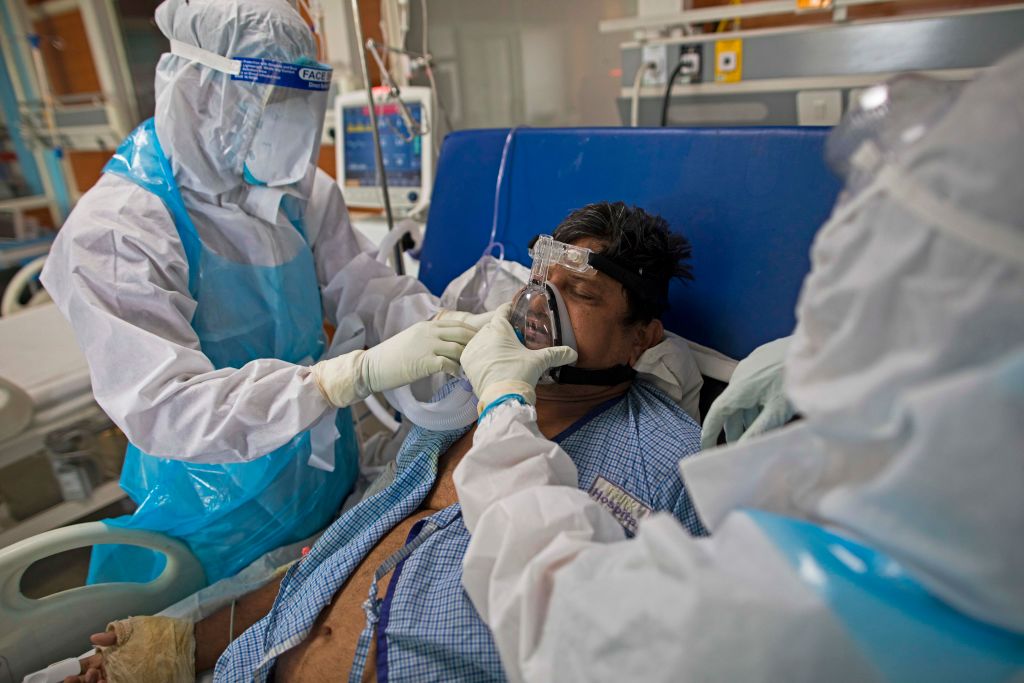The ICU death rate for COVID-19 has fallen dramatically since March, study finds


A free daily email with the biggest news stories of the day – and the best features from TheWeek.com
You are now subscribed
Your newsletter sign-up was successful
If you are sick enough with COVID-19 to be admitted to a hospital intensive care unit, your chances of survival are much better today than they were a few months ago, researchers report in the journal Anaesthesia. The British study analyzed all published research from around the world on COVID-19 ICU deaths among adults, and it found the fatality rate dropped from 60 percent of ICU patients at the end of March to 40 percent in May, a 33 percent drop. The ICU death rate was more or less constant across all continents.
"As we learn more about this virus and its effect on the critically ill, we become better at treating it and its complications," Dr. Eric Cioe Pena, director of global health at Northwell Health, tells ABC News. "The global sum of knowledge brought to bear on this problem is what has helped to reduce mortality." Doctors now have more effective tools, including proven steroids and anti-viral drugs, and they have a better understanding of the new coronavirus and how it affects the body. Also, "we are more knowledgeable about ventilator management in these patients," said Dr. Amesh Adalja at the Johns Hopkins University Center for Health Security.
While the ICU death rate has fallen across national boundaries, different countries have employed divergent strategies to mitigate the spread of COVID-19, and overall deaths are rising in countries that have failed to contain the disease. The virus is "like a big giant forest fire that's looking for human lives to burn," University of Minnesota infectious disease reacher Michael Osterholm tells Politico. If the treatment gains are not "coupled with good public health measures," Pena told ABC News, we will "erase any gains made over the last few months by simply overwhelming the ICUs that have just become better at treating COVID-19."
The Week
Escape your echo chamber. Get the facts behind the news, plus analysis from multiple perspectives.

Sign up for The Week's Free Newsletters
From our morning news briefing to a weekly Good News Newsletter, get the best of The Week delivered directly to your inbox.
From our morning news briefing to a weekly Good News Newsletter, get the best of The Week delivered directly to your inbox.
A free daily email with the biggest news stories of the day – and the best features from TheWeek.com
Peter has worked as a news and culture writer and editor at The Week since the site's launch in 2008. He covers politics, world affairs, religion and cultural currents. His journalism career began as a copy editor at a financial newswire and has included editorial positions at The New York Times Magazine, Facts on File, and Oregon State University.
